Mick McGuane: How to beat Melbourne in 2022, what your team needs to do
If Christian Petracca gets off the chain, he will require locking down, but Mick McGuane says there is another Demon midfielder who you would tag first every time.
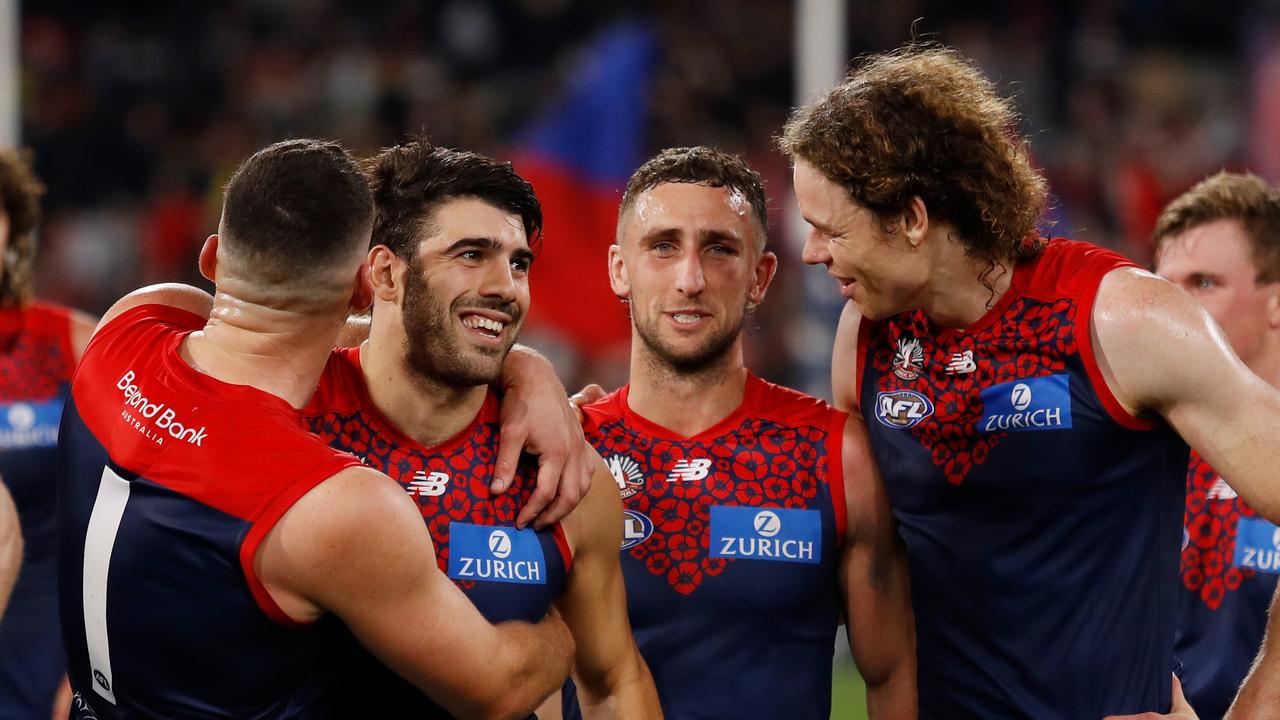
Melbourne won last year’s premiership and is looking unstoppable again this season after a 6-0 start to its campaign.
The Demons have now won their past 13 games on the trot, dating back to a Round 19 loss to the Western Bulldogs in 2021.
So how do you stop them?
We got football analyst Mick McGuane to put his coaches’ hat on and break down what teams need to do if they are to stand a chance of countering the Demons.
Stream every match of every round of the 2022 Toyota AFL Premiership Season Live & Ad-Break Free In-Play on Kayo. New to Kayo? Try 14-Days Free Now >
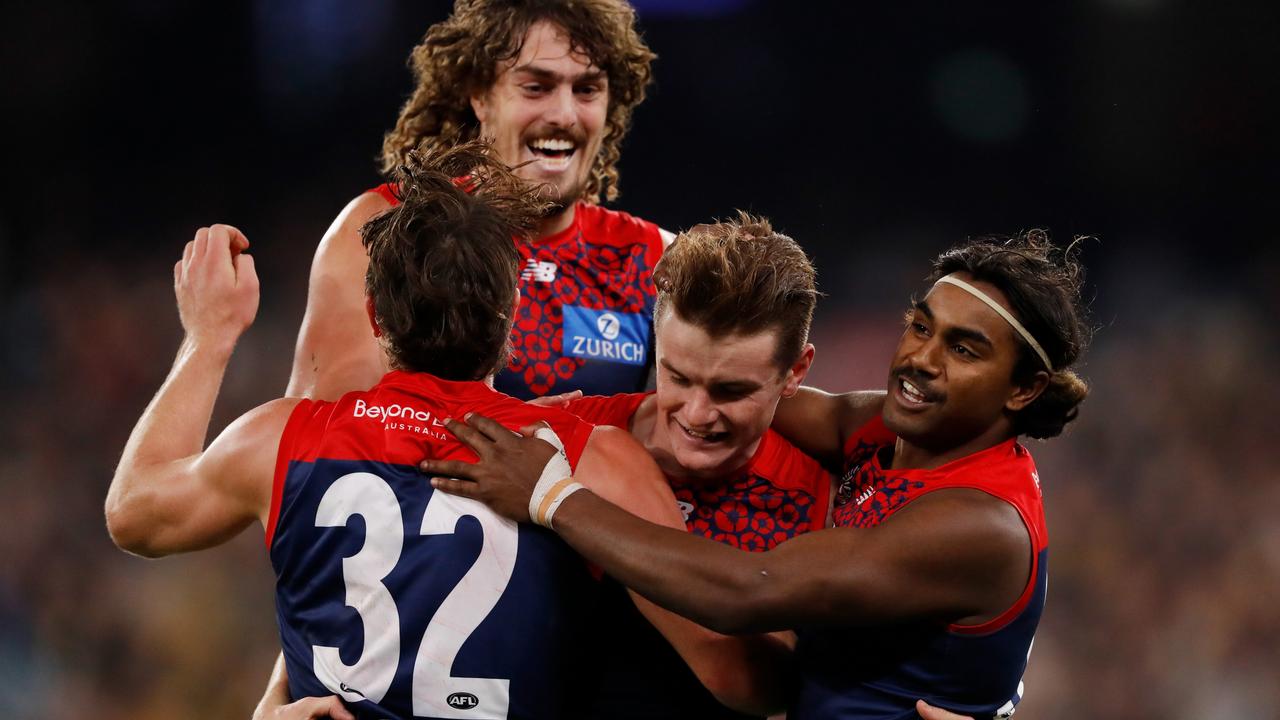
THE THREE KEYS TO SUCCESS AGAINST THE DEES
1. BRING THE HEAT
The most important thing you have to do against Melbourne is to bring the heat.
Effort and intensity at the contest are non-negotiables, considering the Demons’ game style is built around being a strong contest and territory team.
Contest wins are critically important and allow you to get your team strong field position rather than relinquishing it.
To stand a chance against Melbourne, you simply have to at least break even in the contested ball and clearance count.
However, that’s easier said than done.
In four of their six games this season, the Demons have won contested ball by 20 or more.
Results like that hand Melbourne great territory and — as a result — they are averaging 59 inside-50s a game and are conceding an average of just 49 against.
Opposition teams have to at least neutralise the contest, but when the ball spills into space you also need to not allow the Demons to dominate post-clearance contested ball.
Your anticipation, work rate and commitment to get to those loose balls has to exceed that of the Demons players.
The pressure you need to put on Melbourne extends to all parts of the ground, but particularly in the forward half.
Without creating forward half intercepts and scoring from them, you are going to struggle to defeat the Demons on the scoreboard.
Finding a way to score is an essential ingredient against the best “team defence” outfit in the competition.
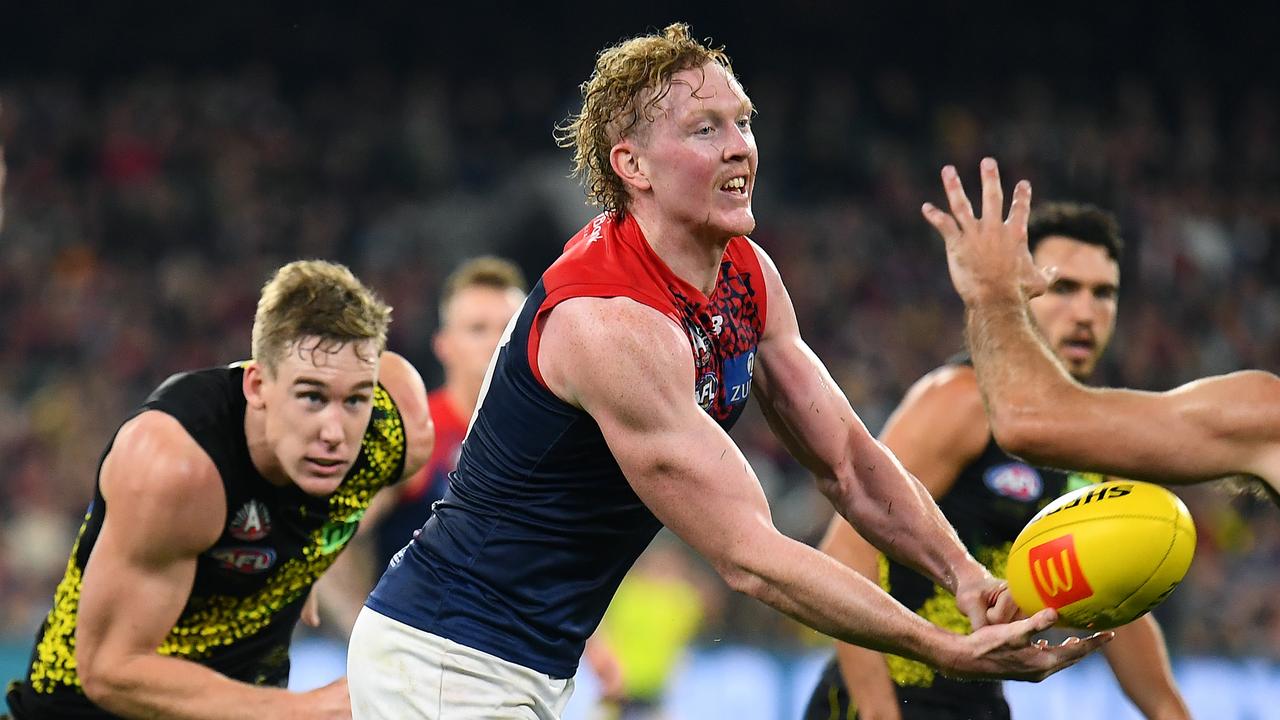
2. EMPLOY STAY-AT-HOME FORWARDS
Your forwards have got to play with the mindset of defenders when you take on Melbourne.
You cannot allow Steven May to run around without an opponent and serve as the Demons’ organiser in defence.
But May is not the only one — you’ve also got to keep the likes of Jake Lever, Harrison Petty and Christian Salem (when he returns) occupied and have your forwards use them as competitive starting points.
A lot of clubs are falling into the temptation of rolling up a high half-forward as an extra number to saturate the stoppages in general play.
That might prove a winner at stoppages, but it plays into Melbourne’s hands by allowing them to get May or Lever free in defence.
More often than not, May or Lever will win the ball back and kickstart Melbourne’s turnover game, their offensive transition helped by the spare defender they then have in the backline.
Simon Goodwin’s side is the third-best in the competition at scoring from turnovers this season, averaging 61.2 points a game.
Your forwards need to not only concentrate on their positioning but also stay relevant as usable options as keeping Melbourne’s defenders engaged helps disrupt their drop off mentality to assist another teammate.
It is also important as forwards to separate from each other to force the Demons’ defenders into one-on-ones.
May, Lever and Petty read the play so well and will drop off their respective opponents to create a two-on-one if they are in close proximity.

3. CONTROL THE AIR (OR AT LEAST BREAK-EVEN)
Here’s a fun fact: Melbourne ruckman Max Gawn has taken the equal-most contested marks of any player in the competition this season with 17.
Sitting equal-15th on the contested marks table are a pair of Demons in Luke Jackson and Steven May who have each taken 10 contested grabs.
You have to do everything you can to bring the ball to ground when those three players are competing in the air.
Ideally, you always want to mark the ball yourself.
But if you can’t mark it, don’t get out-marked — particularly if the ball is inside your forward-50.
If you can at least get it to ground, you give yourself a chance to win the ball back and create a scoring opportunity or at least if Melbourne win it, putting pressure on them is paramount in order to generate forward-half intercepts.
The Demons have had more contested marks than their opponents in five of their six matches this year.
They also average the fifth-most marks inside-50 in the competition with 12.7 a game, while conceding an average of just 6.7 opposition marks inside-50.
It is vital to take away Melbourne’s aerial dominance if you want to kick a winning score — and finding ways to score is a significant part of dismantling the Demons.
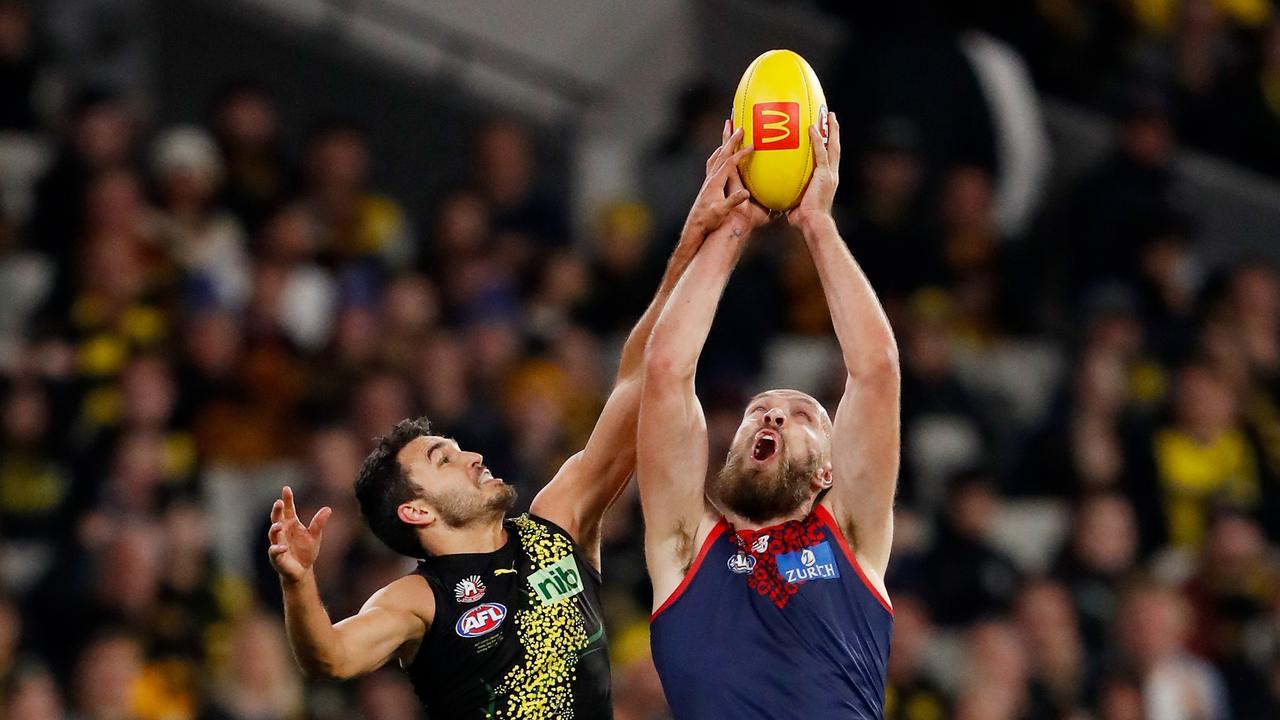
ALSO WORTH IMPLEMENTING …
LOWER THE EYES GOING FORWARD
Long, high bombs forward don’t work against the Demons.
If you have got a stay-at-home forward line, your forwards should be able to lead up to the ball carrier and get some good looks against their opponents.
Lower the eyes and hit them up.
Keep the ball low and embrace imperfection.
You’re not going to hit the forward lace-out every time, but it’s better the ball coming in low and short of the target and ending up on grass than bombing it in high and bringing Gawn, Jackson, May, Lever or Petty into the marking contest.
GENERATE SCORES FROM FORWARD-HALF INTERCEPTS
You have to match Melbourne in this area and the starting point is having stay-at-home forwards.
From there, it’s about making the ground small when you get the ball inside your forward 50. You achieve this by rolling up your defenders aggressively, and getting both wingers to squeeze hard up against Ed Langdon and James Jordan when they push into your forward 50 to support their fellow defenders.
Not going with them gives them their want as they often start or join in their attack from their defensive 50.
Folding back and retreating is exactly what Melbourne’s defenders want so it’s important to hold your nerve and trust that the forwards won’t allow any easy rebounds.
You have got to be able to turn the ball over in your forward half and, if you do, you have to capitalise on those turnovers on the scoreboard.
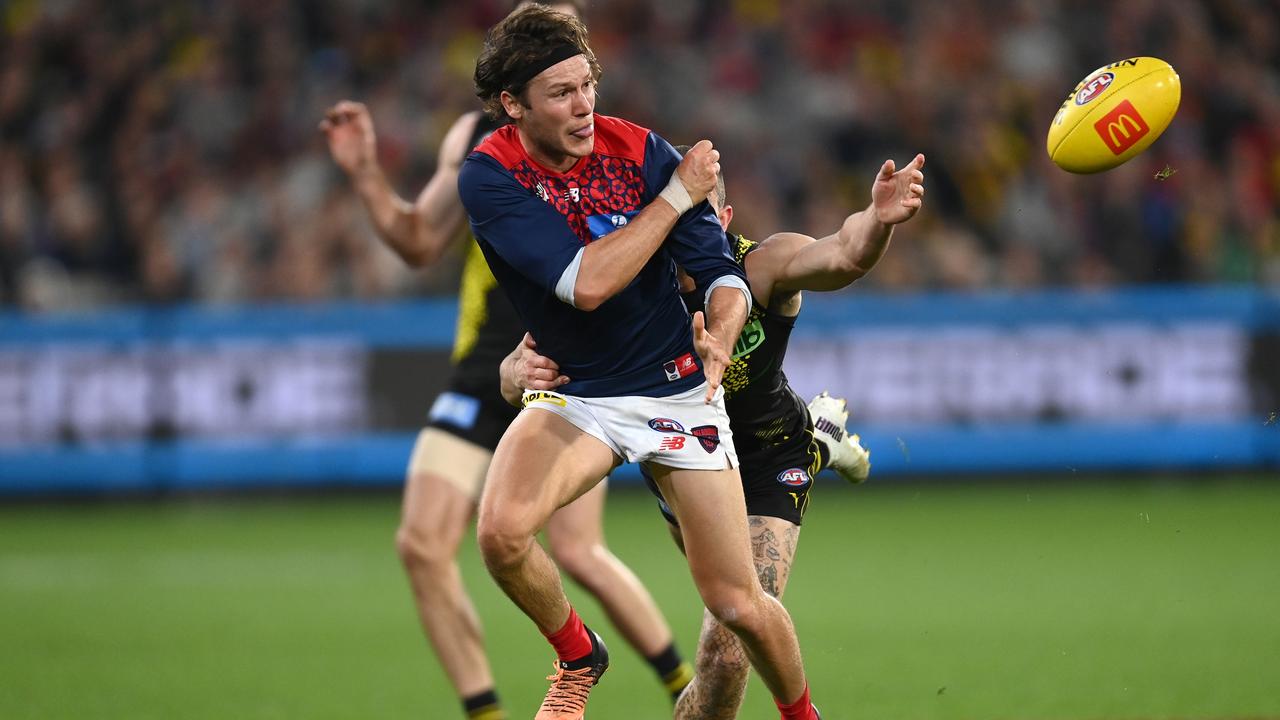
SHIFT THE DEFENCE
When you’re going forward with the ball, keep changing the angles and at speed wherever possible.
Shifting the ball off it’s line is a way to unsettle the Demons’ defence.
Playing in straight lines won’t cut it.
Slow, down-the-line ball movement allows Gawn to get back behind the footy and May and Lever to roll off their opponents and get to the contest.
There will still be times to use slow ball movement to control tempo or close out a quarter, but playing fast where possible is a must against Melbourne — if you keep equal numbers forward of the ball.
OUTSIDE THE CENTRE SQUARE
Gawn is such a dangerous ruckman given his ability to hit the ball to any area at centre bounces and Jackson has become a great follow-up ruckman.
Give them something to think about.
Melbourne’s wingmen tend to stay and keep their width rather than getting sucked into the contest.
However, if I’m coaching the opposition, I’d be telling our wingman at centre bounces to run a defensive pattern (get in behind our ruckman) so you are there to pressure Oliver or Petracca if they are charging out the front of the centre bounce stoppage but also be there to assist if we win first possession.
Simultaneously, our half-forward flanker is rounding up their winger (Eg. Langdon) just in case he doesn’t go with our winger into the centre bounce contest for that moment in time. Giving them different looks and challenges might just put them on the back foot and get them to be reactive to what we are doing.
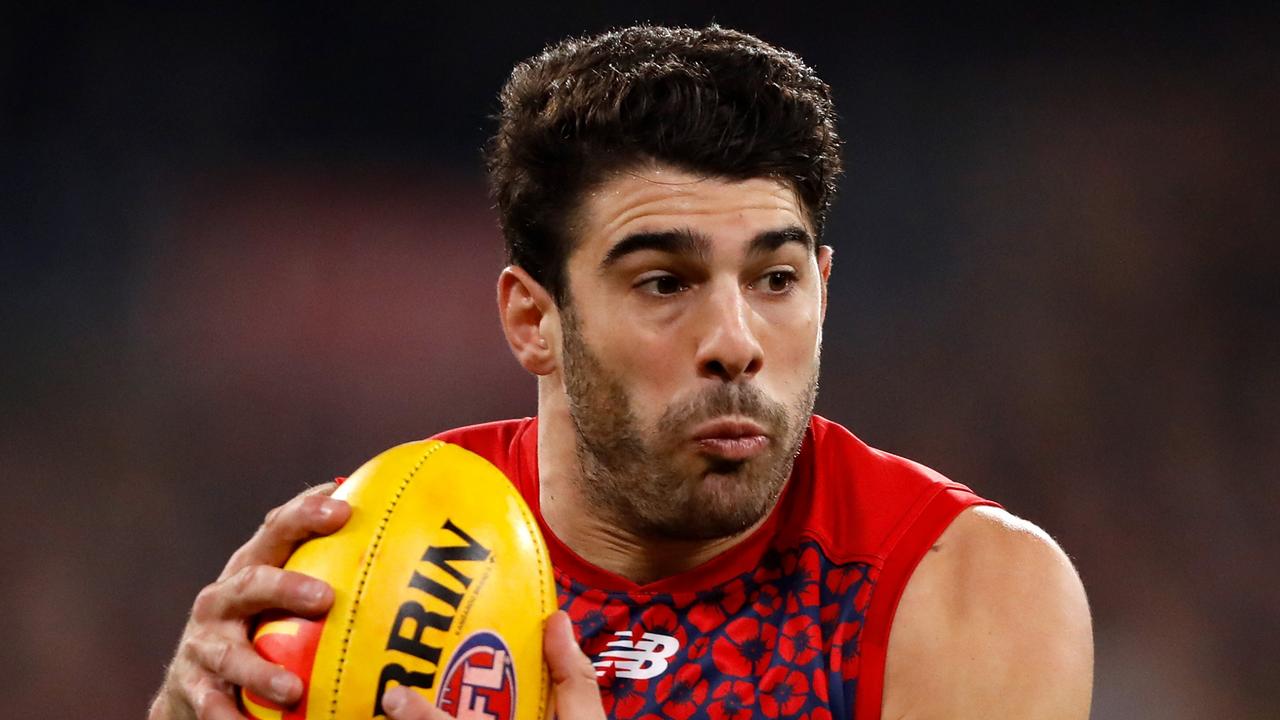
USE A TAGGER
You have to hunt Melbourne and to kickstart that mentality, I’d be engaging a tagger to hunt and harass Clayton Oliver — as hard as he is to tag.
At stoppages, you have to really concentrate on stepping in and stepping across his path — but never show your back to him too early otherwise he will push you under the ball at the stoppage.
It’s a must to get to the drop zone of where Gawn usually taps the ball to Oliver and try and take away his first-possession winning ability.
It takes a special player to fight the fight and maintain the discipline to master such a role but the rewards are huge if you can knock over their offensive fire starter.
If Christian Petracca gets off the chain, you might need to go to plan B and lock him down instead.
But I’d be starting with Oliver every time.
FISH OUT GAWN AND JACKSON
A lot of opposition ruckman are getting caught pushing deep forward when they’re up against Gawn or Jackson.
You should instead be trying to fish the pair out rather than allowing them to position themselves where they want.
Have your ruckman sit 30-40m from goal instead of at the top of the goalsquare.
If Gawn or Jackson don’t want to man him up, use him.
If they do man him up, at least your key forwards do not have to compete against Gawn or Jackson in the air.
PUT PLAYERS IN THE GUN
Remember when Port Adelaide ruck pairing Scott Lycett and Paddy Ryder ‘bullied’ Gawn in Round 1, 2019?
Along with the rest of the Power side, they went after Gawn and gave him a bump whenever possible to make his day just a little tougher.
I’m not sure why other teams — within the rules — don’t similarly engage in some physical and verbal warfare.
You might go after Gawn, or Petracca, or even Lever, Jayden Hunt or Bayley Fritsch.
Why not test them and challenge their temperament and discipline?
Let them know they are playing a physical game and such actions can wear players down across two hours — both physically and mentally.
Surely every team is sick of being dictated to when you play Melbourne.
It’s time to be the hunter rather than accepting you are being the hunted.




